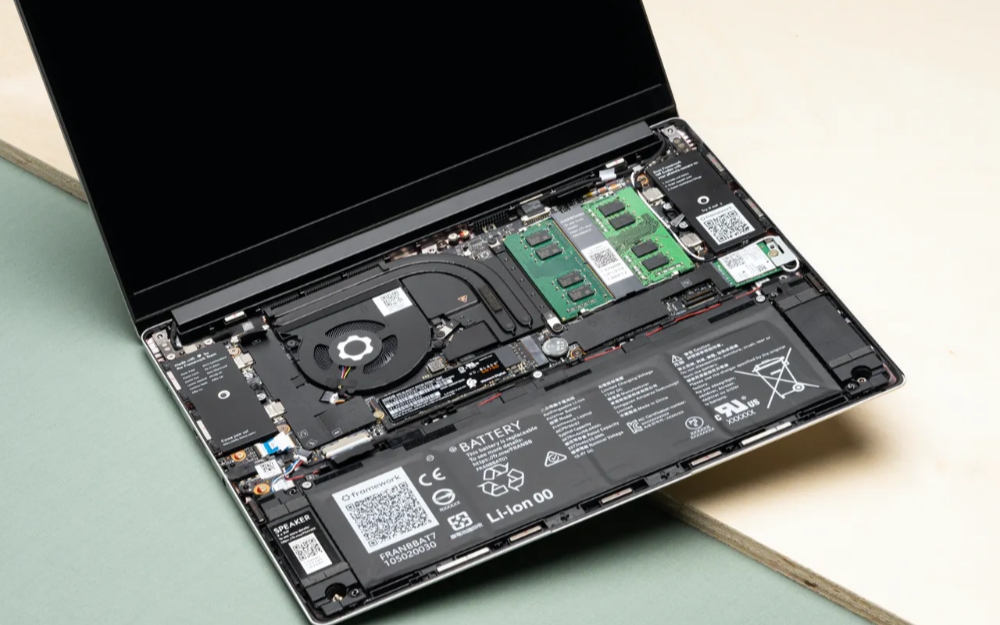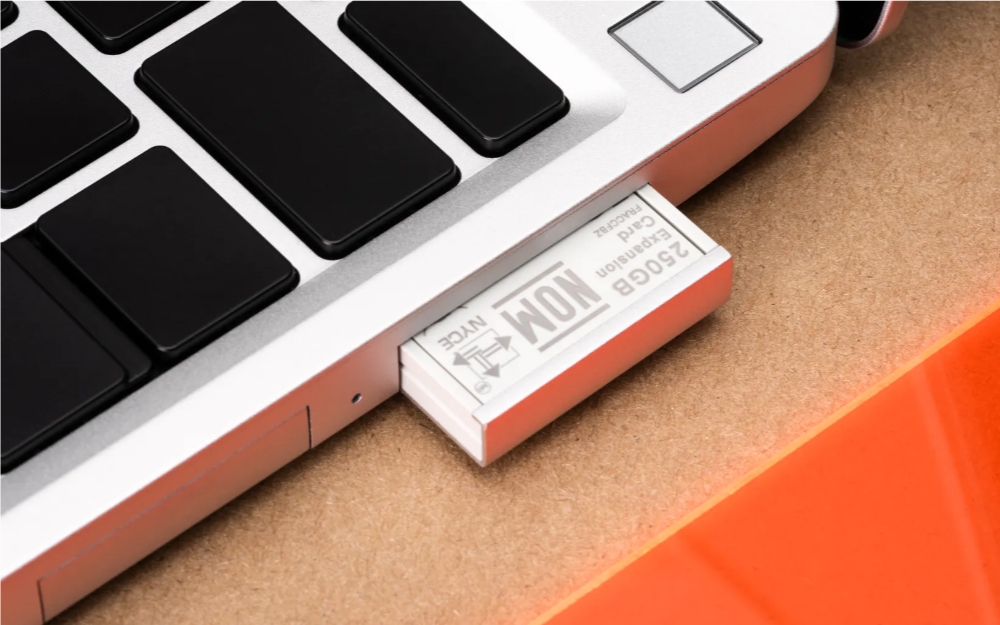Framework Reveals More About Its Customizable Laptop's Parts
True DIY.
In contrast with the buy-ditch-replace model most current laptops operate under, San Francisco-based startup Framework announced in late February that it wanted to create a laptop that was truly customizable, largely future-proof, and more eco-friendly. In the following weeks, its revealed more details about how it planned to achieve those goals, and today it announced the new Framework Community devoted to its project.
Let's recap the basic specs: Framework's laptop is set to initially feature 11th Gen Intel Core processors and support up to 64GB of DDR4 memory as well as up to 4TB of storage via PCIe Gen 4 NVMe SSDs. It's also expected to have a 13.5-inch, 2256 x 1504 resolution display and an aluminum case that weighs less than 2.9 pounds (1.3kg).
But the Framework laptop's primary appeal is its ability to reduce electronic waste, partly because it's set to be made from 50% recycled aluminum and up to 30% recycled plastic, and mostly because it's supposed to feature extensive customization that allows many of its components to be replaced individually through swappable modules.
The company started to share more information about the Framework laptop's starting parts modules shortly after it was revealed. It started with the keyboard options, which is said to rely on fasteners that can be removed using the included screwdriver, and for which the company plans to sell replacements via the Framework Marketplace after launch.
Framework said the keyboard will be available in at least 11 different languages and layouts this year. It also vowed to "continue to scale the options to cover the most common languages first and eventually every language that a keyboard layout exists for, including ones that have never previously been built into a laptop."
Framework also plans to launch with two special edition keyboards: a "fully stealthed out matte black" option and a "unique crystal clear" option, neither of which feature any printing at all, which is exactly the kind of gimmick people appreciate until they forget where each key is. At least you'll be able to replace the keyboard easily, yeah?

The company then moved on to detailing the laptop's starter webcam, which is a custom 1080p 60fps camera developed in partnership with Partron. Framework said the camera will feature a 1/6" OmniVision OV2740 sensor, a "wide 80° diagonal f/2.0 four element lens" with a "blue glass IR filter," and a Realtek RTS5853 camera controller.
Get Tom's Hardware's best news and in-depth reviews, straight to your inbox.
All of those features are supposed to allow the camera to perform better in a variety of lighting conditions and at a higher resolution than most laptop webcams, many of which are still limited to 720p and struggle in less-than-ideal lighting. Framework also addressed privacy by including a hardware privacy switch in the camera.

Next came the mainboard options. Framework said it plans to offer mainboards equipped with Intel Core i5-1135G7, i7-1165G7, and i7-1185G7 processors to start. Those CPUs will be complemented by a 65 x 5.5mm cooling fan, dual 5mm heat pipes, and a copper fin pack said to enable 28W continuous processor load and up to 60W turbo.
But the company won't stop with Intel's latest-generation processors: Framework said it "architected the mainboard to maximize adaptability to future generations of x86 and ARM (and we hope eventually RISC-V!) CPUs." The mainboard is supposed to be reusable outside of the system, too, which should complement its easy replaceability well. For instance, Framework's blog post suggests building a single-board computer using your old mainboard after upgrading your Framework laptop with a new one.
Framework's next blog post detailed its Storage Expansion Cards. These external drives utilize the Phison U17 flash controller, Micron N28 NAND, and USB 3.2 Gen 2. The company said it will offer two cards to start: a 250GB model with 1000 MB/s read and 375 MB/s write speeds, and a 1TB model that "exceeds 1000 MB/s sequential read and write performance, with fantastic random read and write."

Finally comes the Framework Community, which the company said it plans to use "to brainstorm and get your input on prioritizing future modules, upgrades, and products through threads, polls, and early development previews." It appears to be a pretty standard discourse forum, but still, at least the effort's being made.
Having more details about the Framework laptop does help ease concerns that the company revealed its dream product without a concrete plan for supporting it later. But that doesn't warrant the suspension of all disbelief—this is still a startup making a lot of promises (salt) regarding hardware (more salt) during a global chip shortage (just empty the entire shaker) for a product that isn't expected to be available until this summer.

Nathaniel Mott is a freelance news and features writer for Tom's Hardware US, covering breaking news, security, and the silliest aspects of the tech industry.
-
GenericUser If this ever got traction as a mainstream thing, I think this could be pretty interesting. I've had several people approach me before saying they "want to build a laptop", which I always have to tell them "you don't build laptops".Reply -
ezst036 ReplyGenericUser said:If this ever got traction as a mainstream thing, I think this could be pretty interesting. I've had several people approach me before saying they "want to build a laptop", which I always have to tell them "you don't build laptops".
I have wanted for many years a truely build your own laptop. But there is no standard motherboard form factor, among many other things needed.
The closest has often been "barebones", which isnt nearly the same. Let's hope that all changes. It did always surprise me that two manufacturers, say an Asus and a Lian Li, (pick any two you want, really, one makes boars and the other is cases) didnt ever come together to make it a reality. -
BaRoMeTrIc Great idea, but just another company who won't be around, or won't have the capital to make good on their modularity. Really wish barebones laptops made a comeback.Reply -
Darkmatterx I've also longed for this to be "the norm" for every good reason there is. Is it going to happen at some point? Yes, I'm sure it will. Is that time now? We'll have to wait and see, but for mainstream companies, I'm gonna put my money on "no." :(Reply -
salgado18 Just to add the same that everyone said, with my humble example:Reply
I have a 2010 Macbook Pro that still works today. The screen is great even today, the keyboard, trackpad and audio are very good, the case is well preserved, everything is good in it (except the battery, but that is changeable). But it is eternally a dual-core Sandy-Bridge processor, with 8GB RAM limited by hardware, and a GT-330m that goes dark from time to time. If I want a better base hardware, I have to throw everything away and get a new one. What will happen to the great screen? Will they melt the aluminium case? How much an equivalent notebook will cost?
I really applaud the initiative, a buildable notebook is awesome. But even a standard motherboard within a manufacturer would solve so many problems. Get a great notebook today, replace the motherboard for a new one 5-10 years later, and keep the rest. Oh, that would be amazing. A nice step in the right direction.